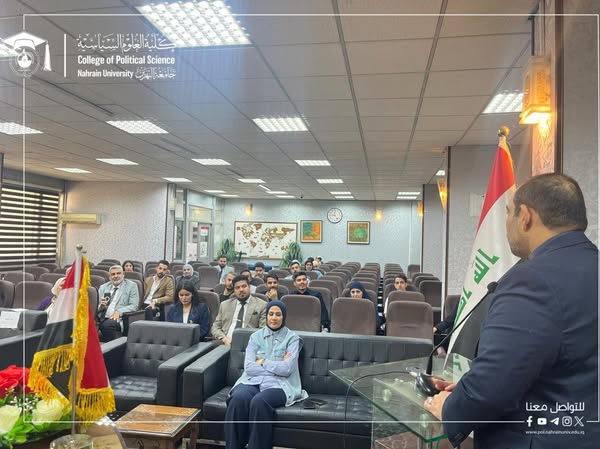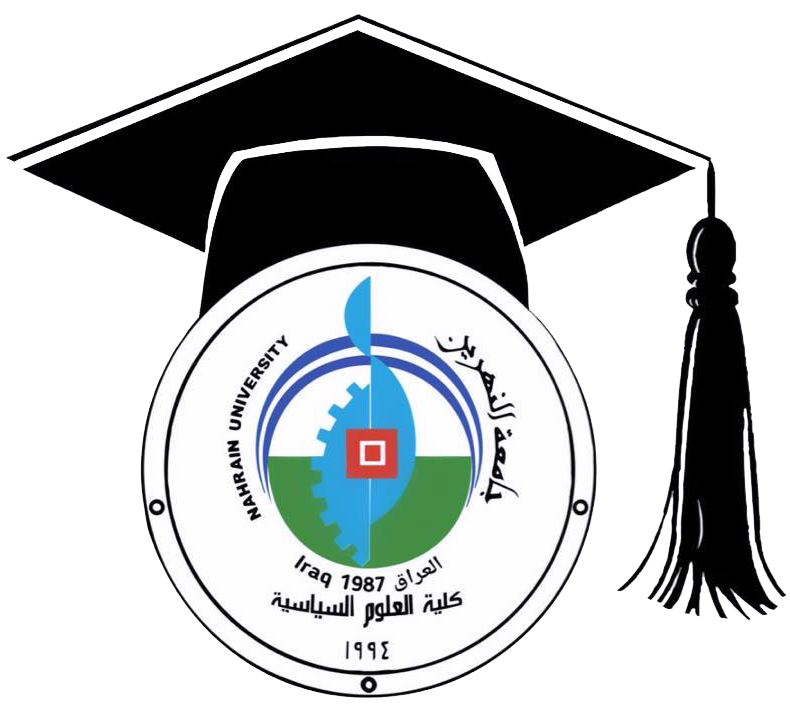“Academic Freedoms: A Right and a Responsibility”

Under the patronage of the Dean of the College of Political Science at Nahrain University, Prof. Dr. Osama Murtadha Baqir Al-Saadi, and in order to promote academic freedoms and achieve a more open and free academic environment, the college organized a student forum for open academic dialogue.
The forum included an open discussion session between students, faculty members, and the college administration, during which the Dean of the College reviewed the concept of academic freedoms and their importance, and explained the objectives of the forum, the discussion mechanism, and the analysis of the concept of academic freedom from a legal and educational perspective.
The forum, attended by a number of faculty members, graduate and undergraduate students, aimed to understand the meaning of academic freedoms, how they can affect the educational process, the difference between academic freedoms and freedom of expression within the university, and the use of social media in contributing to achieving a balance between academic freedoms and academic responsibility.
During the forum, students’ proposals and some of the obstacles they face in their research and thesis writing were discussed, and they answered questions related to the most prominent challenges facing freedom of expression and discussion within the classroom, and the obstacles that stand in the way of scientific excellence, including working hours.
The most important questions raised during the discussion were how to support academic freedoms without harming academic values, and how students can effectively defend their academic rights.
One of the challenges facing students in the era of technology and artificial intelligence is the role that social media can play in enhancing or restricting academic freedoms, and the role of technology in facilitating access to knowledge without restrictions.
The experience, which took place for the first time in the college, contributed to stimulating collective thinking and encouraging students to propose practical solutions to promote a more open and free academic environment.
